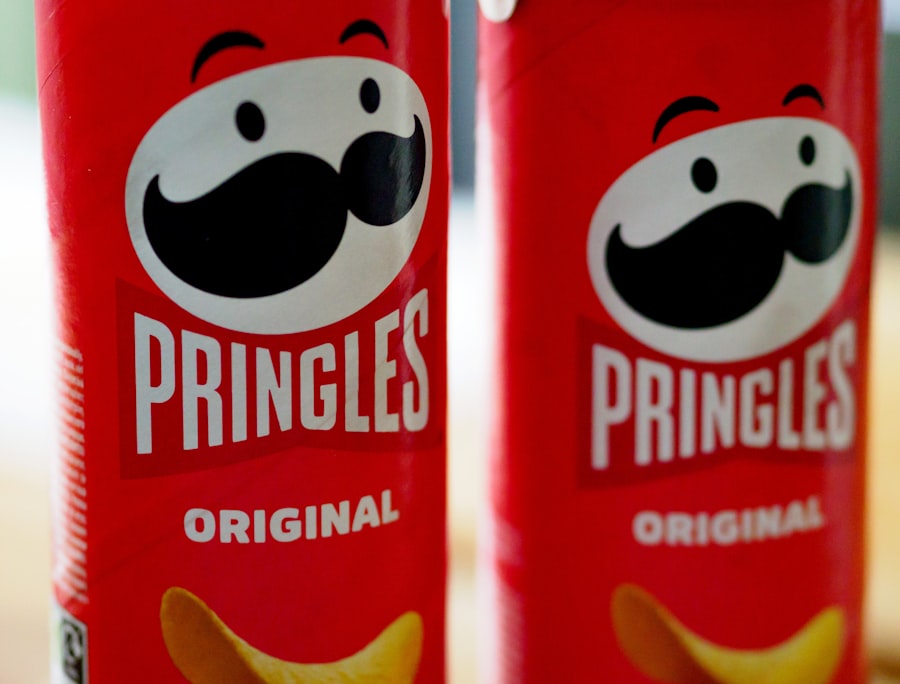Private label brands have become a significant force in the retail landscape, capturing the attention of consumers and retailers alike. These brands, often produced by manufacturers for a specific retailer, are marketed under the retailer’s name rather than a traditional brand name. You may have encountered them in grocery stores, where products like store-brand cereals or snacks sit alongside well-known national brands.
The appeal of private label brands lies in their ability to offer consumers quality products at competitive prices, often leading to a shift in purchasing behavior. As you navigate the aisles of your favorite stores, you might notice that private label brands are not just limited to food items; they have expanded into various categories, including household goods, personal care products, and even clothing. This diversification reflects a broader trend in consumer preferences, where shoppers are increasingly seeking value without compromising on quality.
Understanding the dynamics of private label brands is essential for grasping the current retail environment and how it shapes your shopping experience.
Key Takeaways
- Private label brands are products manufactured by a third-party company and sold under a retailer’s brand name.
- The retail industry has seen a significant rise in private label brands due to their lower cost and higher profit margins for retailers.
- Private label brands can affect consumer choice by offering comparable quality at a lower price, leading to increased market share.
- Small and medium-sized businesses may face challenges in competing with private label brands due to their pricing and distribution advantages.
- The pricing strategy of private label brands can impact competition by forcing other brands to lower their prices, potentially leading to reduced profit margins.
The rise of private label brands in the retail industry
The rise of private label brands can be attributed to several factors that have transformed the retail industry over the past few decades. One significant driver is the growing consumer demand for affordable options without sacrificing quality. As you become more budget-conscious, you may find yourself gravitating toward private label products that offer similar quality to national brands at a lower price point.
Retailers have recognized this trend and have invested in developing their own brands to meet these evolving consumer needs. Additionally, advancements in supply chain management and manufacturing processes have enabled retailers to produce high-quality private label products more efficiently. You might be surprised to learn that many private label items are manufactured by the same companies that produce well-known national brands.
This has led to an increase in consumer trust in private label offerings, as you may perceive them as being on par with their branded counterparts. As a result, private label brands have gained significant market share, reshaping the competitive landscape of the retail industry.
How private label brands affect consumer choice

Private label brands have a profound impact on your choices as a consumer. With an increasing number of options available, you may find yourself faced with a wider array of products than ever before. This abundance can be both empowering and overwhelming.
On one hand, the presence of private label brands allows you to explore alternatives that fit your budget and preferences. On the other hand, it can complicate your decision-making process as you weigh the merits of various options. Moreover, private label brands often encourage you to reconsider your loyalty to established national brands.
You might discover that a store-brand product offers comparable quality at a fraction of the price, prompting you to rethink your purchasing habits. This shift in consumer behavior can lead to a more discerning approach to shopping, where you prioritize value and quality over brand recognition. As you navigate this evolving landscape, it’s essential to remain open-minded and willing to experiment with different products, as private label brands continue to innovate and improve.
The impact of private label brands on small and medium-sized businesses
| Impact | Metrics |
|---|---|
| Competition | Market share loss |
| Consumer behavior | Preference for private label brands |
| Profitability | Decrease in margins |
| Supply chain | Changes in sourcing and distribution |
The rise of private label brands poses both challenges and opportunities for small and medium-sized businesses (SMBs). As larger retailers expand their private label offerings, you may notice that SMBs struggle to compete on price and visibility. The aggressive pricing strategies employed by retailers can make it difficult for smaller brands to maintain their market share, forcing them to rethink their positioning and marketing strategies.
However, this landscape is not entirely bleak for SMBs. The growing popularity of private label brands has also created opportunities for niche products that cater to specific consumer needs. As you seek out unique or artisanal items, you may find that smaller businesses can thrive by offering specialized products that stand out from the generic offerings of private labels.
By focusing on quality, craftsmanship, and unique selling propositions, these businesses can carve out a loyal customer base that values their distinctiveness over price alone.
The pricing strategy of private label brands and its effect on competition
The pricing strategy employed by private label brands plays a crucial role in shaping competition within the retail sector. You may have noticed that these products are often priced significantly lower than their branded counterparts, which can create a perception of value among consumers. This pricing strategy not only attracts budget-conscious shoppers but also forces national brands to reconsider their pricing structures in order to remain competitive.
As retailers leverage their buying power to negotiate lower production costs for private label goods, you may see a ripple effect throughout the market.
This dynamic can lead to a more competitive environment where consumers ultimately benefit from better prices and improved product offerings.
However, it also raises questions about the long-term sustainability of such competition and whether it will lead to a homogenization of products across the market.
The challenge of brand loyalty in the presence of private label brands

Brand loyalty has long been a cornerstone of consumer behavior, but the emergence of private label brands presents a challenge to this traditional notion. As you explore your shopping options, you may find that your loyalty to established brands is tested by the allure of private labels offering similar quality at lower prices. This shift can lead to a reevaluation of what brand loyalty means in today’s retail environment.
You might also consider how marketing strategies play a role in shaping your perceptions of both national and private label brands. While established brands often rely on emotional connections and brand heritage to foster loyalty, private labels may focus on delivering value and quality at competitive prices. This shift in focus can create a more transactional relationship with products, where price becomes a primary driver of choice rather than emotional attachment.
As you navigate this evolving landscape, it’s essential to reflect on what factors truly influence your purchasing decisions.
The role of private label brands in monopolizing the market
The increasing dominance of private label brands raises concerns about market monopolization and its implications for competition. As retailers expand their private label offerings, you may notice that they begin to capture significant market share across various product categories. This trend can lead to reduced choices for consumers as national brands struggle to compete against the aggressive pricing and marketing strategies employed by retailers.
In some cases, this monopolization can result in fewer options for consumers as smaller brands are pushed out of the market. You might find that certain categories become dominated by a handful of retailers’ private labels, limiting your ability to choose from diverse products that cater to different tastes and preferences. This concentration of power can stifle innovation and creativity within the industry, as fewer players are left to drive new ideas and product development.
The effect of private label brands on product innovation and quality
While private label brands have gained traction for their affordability, there are concerns about their impact on product innovation and quality. As you explore these store-brand options, you may wonder whether they can match the innovation levels seen in national brands. In some cases, retailers may prioritize cost-cutting over innovation, leading to products that lack unique features or advancements.
However, it’s important to recognize that not all private label brands are created equal. Some retailers invest significantly in research and development to create high-quality products that rival national brands. You might discover that certain store-brand items offer innovative features or superior quality compared to their branded counterparts.
This duality highlights the need for consumers like yourself to remain discerning and informed when evaluating product options.
The potential consequences of reduced competition in the market
The rise of private label brands has sparked discussions about the potential consequences of reduced competition within the retail sector. As you witness larger retailers consolidating their market power through aggressive private label strategies, there is concern about how this could affect pricing, product diversity, and overall consumer welfare. A lack of competition can lead to complacency among retailers and manufacturers alike, resulting in stagnation in product development and quality improvements.
Moreover, reduced competition may create barriers for new entrants into the market, limiting innovation and diversity in product offerings. You might find that fewer players mean less variety on store shelves, which could ultimately impact your shopping experience. As consumers become increasingly aware of these dynamics, it’s crucial for you to advocate for diverse options and support businesses that prioritize innovation and quality over mere price competition.
Regulatory measures to address the dominance of private label brands
In light of the growing concerns surrounding the dominance of private label brands, regulatory measures may be necessary to ensure fair competition within the retail industry. You might wonder what steps governments can take to address these issues while still allowing retailers the freedom to develop their own products. Potential measures could include antitrust regulations aimed at preventing monopolistic practices or encouraging transparency in pricing strategies.
Additionally, policymakers could consider initiatives that support small and medium-sized businesses in competing against larger retailers’ private labels. By fostering an environment where diverse players can thrive, you may benefit from a wider range of choices and innovative products in the marketplace. As consumers become more engaged with these issues, your voice can play a vital role in advocating for policies that promote fair competition and protect consumer interests.
Conclusion and future outlook for competition in the retail industry
As you reflect on the rise of private label brands and their impact on the retail industry, it’s clear that this trend is reshaping your shopping experience in profound ways. While these brands offer affordability and convenience, they also pose challenges related to competition, brand loyalty, and product diversity. The future outlook for competition in the retail sector will depend on how various stakeholders—retailers, manufacturers, consumers, and regulators—navigate these complexities.
In an ever-evolving landscape where consumer preferences continue to shift toward value-driven choices, it’s essential for you as a shopper to remain informed and engaged with these dynamics. By supporting businesses that prioritize quality and innovation while advocating for fair competition policies, you can help shape a retail environment that benefits everyone involved. Ultimately, your choices as a consumer will play a pivotal role in determining how the retail industry evolves in response to the growing influence of private label brands.
Private label brands, often seen as cost-effective alternatives to national brands, can significantly impact market competition. By offering similar products at lower prices, these brands can drive down the market share of established companies, potentially leading to reduced innovation and variety in the marketplace. This dynamic is explored in an insightful article on the topic, which discusses the broader implications of private label brands on competition and consumer choice. For a deeper understanding of how these brands influence market dynamics, you can read more in this com/’>related article.
💸WATCH THIS! The Hidden Tax That Makes Everything You Buy a Scam
FAQs
What are private label brands?
Private label brands are products that are manufactured by one company but sold under the brand name of a different retailer. These products are often sold at a lower price than national brands and are exclusive to the retailer that sells them.
How do private label brands hurt competition?
Private label brands can hurt competition by reducing consumer choice and limiting the ability of smaller manufacturers to compete in the market. This is because retailers may prioritize their own private label brands over other brands, making it difficult for smaller manufacturers to get their products on store shelves.
Do private label brands benefit consumers?
Private label brands can benefit consumers by offering lower-priced alternatives to national brands. However, they can also limit consumer choice and potentially lead to less innovation in the market.
Are there any regulations on private label brands?
There are regulations in place to ensure that private label brands meet certain quality and safety standards. However, there are no specific regulations that address the potential impact of private label brands on competition in the market.
What can be done to address the impact of private label brands on competition?
Some experts suggest that increased transparency and disclosure about the sourcing and manufacturing of private label brands could help address concerns about their impact on competition. Additionally, policymakers could consider measures to promote fair competition and ensure that smaller manufacturers have a level playing field in the market.
